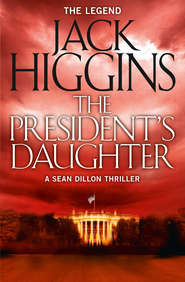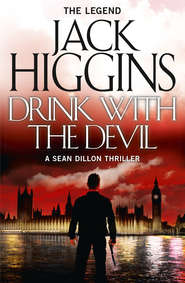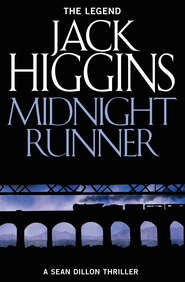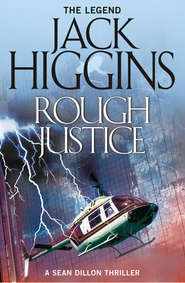По всем вопросам обращайтесь на: info@litportal.ru
(©) 2003-2024.
✖
The Valhalla Exchange
Автор
Год написания книги
2018
Настройки чтения
Размер шрифта
Высота строк
Поля
‘You can recognize it?’
‘Oh, yes, señor. Many German engineers come here.’
‘Can I see the entry in the register?’
He turned it round to show me. It was on the line above mine. There were the details from his passport entered by the clerk, and beside it Bauer’s signature, a trifle spidery, but firm, and the date beside it, using a crossed seven, continental style.
I nodded and pushed the two bills across. ‘Thank you.’
‘Señor.’ He snapped up the twenty dollars and tucked them into his breast pocket. ‘I’ll show you your room.’
I glanced at my watch. It was just after eleven. ‘Too late to visit the undertaker now.’
‘Oh, no, señor, there is a porter on duty all night. It is the custom here for the dead to be in waiting for three days, during which time they are watched over both night and day in case …’ Here, he hesitated.
‘… of a mistake?’ I suggested.
‘Exactly, señor.’ He smiled sadly. ‘Death is a very final affair, so one wants to be sure. Take the first street on the left. You will find the undertaker’s at the far end. You can’t miss it. There’s a blue light above the door. The watchman’s name is Hugo. Tell him Rafael Mareno sent you.’
‘My thanks,’ I said formally.
‘At your orders, señor. And if you would care to eat on your return, something could be managed. I am on duty all night.’
He picked up his newspaper and I retraced my steps across the hall and went outside. The procession had formed up and started across the square as I paused at the top of the steps. It was much as I had seen in Mexico. There were a couple of characters in front, blazing torches in hand, dressed to represent the Lords of Death and Hell. Next came the children, clutching guttering candles, some already extinguished in the heavy rain, the adults following on behind with baskets of bread and fruit. Someone started to play a flute, low and plaintive, and a finger drum joined in. Otherwise, they moved in complete silence.
We seemed to be going the same way and I joined on at the tail of the procession, turning up the collar of my trenchcoat against the heavy rain. The undertaker’s was plain enough, the blue light subdued above the door as Mareno had indicated. I paused, watching the procession continue, the sound of that flute and drum strangely haunting, and only when they had turned into another alley and moved out of sight did I pull the bell chain.
There was silence for quite some time, only the rain. I was about to reach for the chain again when I became aware of a movement inside, dragging footsteps approaching. A grille opened at eye-level, a face peered out, pale in the darkness.
‘Hugo?’
‘What is it you want, señor?’ The voice was the merest whisper.
‘I would like to see the body of Señor Ricardo Bauer.’
‘Perhaps in the morning, señor.’
‘Rafael Mareno sent me.’
There was a pause, then the grille was closed. There was the sound of bolts being withdrawn, the door creaked open. He stood there, an oil lamp in one hand, very old, very frail, almost as if one of his own charges had decided to get up and walk. I slipped inside, he closed the door.
‘You will follow me, please?’
He led the way along a short passage and opened an oaken door and I could smell death instantly, the cloying sweetness of it heavy on the cold air. I hesitated, then followed him through.
The room into which I entered was a place of shadows, a single oil lamp suspended from a chain in the centre supplying the only light. It was a waiting mortuary of a type I had seen a couple of times before in Palermo and Vienna, although the Viennese version had been considerably more elaborate. There were perhaps a dozen coffins on the other side of the room, but first he led me up some steps to a small platform on which stood a desk and chair.
I gazed down into the shadows in fascination. Each coffin was open, a corpse clearly visible inside, the stiff fingers firmly entwined in one end of a string that went up over a pulley arrangement, across to the desk where the other end was fastened to an old-fashioned bell that hung from a wall bracket.
He put down his lamp. I said, ‘Has anyone ever rung that thing?’
‘The bell?’ I saw now that he was very old, eighty at least, the face desiccated, the eyes moist. ‘Once, señor, ten years ago. A young girl. But she died again three days later. Her father refused to acknowledge the fact. He kept her with him for a month. Finally the police had to intervene.’
‘I can see how they would have to.’
He opened a ledger and dipped a pen in an inkwell. ‘Your relationship to Señor Bauer, señor? I must enter it in the official record.’
I took out my wallet and produced another of those ten-dollar bills. ‘Nothing so formal, my friend. I’m just a newspaperman, passing through. I heard the story and thought I might recognize him.’
He hesitated, then laid down the pen. ‘As you say, señor.’ He picked up the lamp. ‘This way.’
It was the end coffin on the back row and I received something of a shock as the old man raised his lamp to reveal red lips, a gleam of teeth, full, rounded cheeks. And then I realized, of course, that the undertaker had been going to work on him. It was as if a wax tailor’s dummy had been laid out for my inspection, a totally unreal face heavy with make-up, resembling no photo that I had ever seen. But how could he hope to, thirty years on? A big, big difference between forty-five and seventy-five.
When the bell jangled, I almost jumped out of my skin and then realized it had sounded from outside. Hugo said, ‘You will excuse me, señor. There is someone at the door.’
He shuffled off, leaving me there beside Bauer’s coffin. If there had been rings, they’d taken them off, and the powerful fingers were intertwined on his chest, the string between them. They’d dressed him in a neat blue suit, white collar, dark tie. It really was rather remarkable.
I became aware of the voices outside in the corridor, one unmistakably American. ‘You speak English? No?’
Then the same voice continuing in bad Spanish, ‘I must see the body of the man Bauer. I’ve come a long way and my time is limited.’
Hugo tried to protest. ‘Señor – it is late,’ but he was obviously brushed aside.
‘Where is the body? In here?’
For some reason, some sixth sense operating if you like, I moved back into the darkness of the corner. A moment later I was glad that I had.
He stepped into the room and paused, white hair gleaming in the lamplight, rain glistening on his military raincoat, shoulders firm, the figure still militarily erect, only the whiteness of the hair and the clipped moustache hinting at his seventy-five years.
I don’t think I’ve ever been so totally astonished, for I was looking at a legend in his own time, General Hamilton Canning, Congressional Medal of Honour, DSC, Silver Star, Médaille Militaire, the Philippines, D-Day, Korea, even Vietnam in the early days. A piece of walking history, one of the most respected of living Americans.
He had a harsh distinctive voice, not unpleasant, but it carried with it the authority of a man who’d been used to getting his own way for most of his life.
‘Which one?’
Hugo limped past him, lamp held high, and I crouched back in the corner. ‘Here, señor.’
Canning’s face seemed calm enough, but it was in the eyes that I saw the turbulence, a blazing intensity, but also a kind of hope as he stood at the end of the coffin and looked down at the waxen face. And then hope died, the light went out in the eyes – something. The shoulders sagged and for the first time he looked his age.
He turned wearily and nodded to Hugo. ‘I won’t trouble you any further.’
‘This was not the person you were seeking, señor?’
Canning shook his head. ‘No, my friend, I don’t think so. Good night to you.’
He seemed to take a deep breath, all the old vigour returning, and strode from the room. I came out of the shadows quickly.
‘Señor.’ Hugo started to speak.











